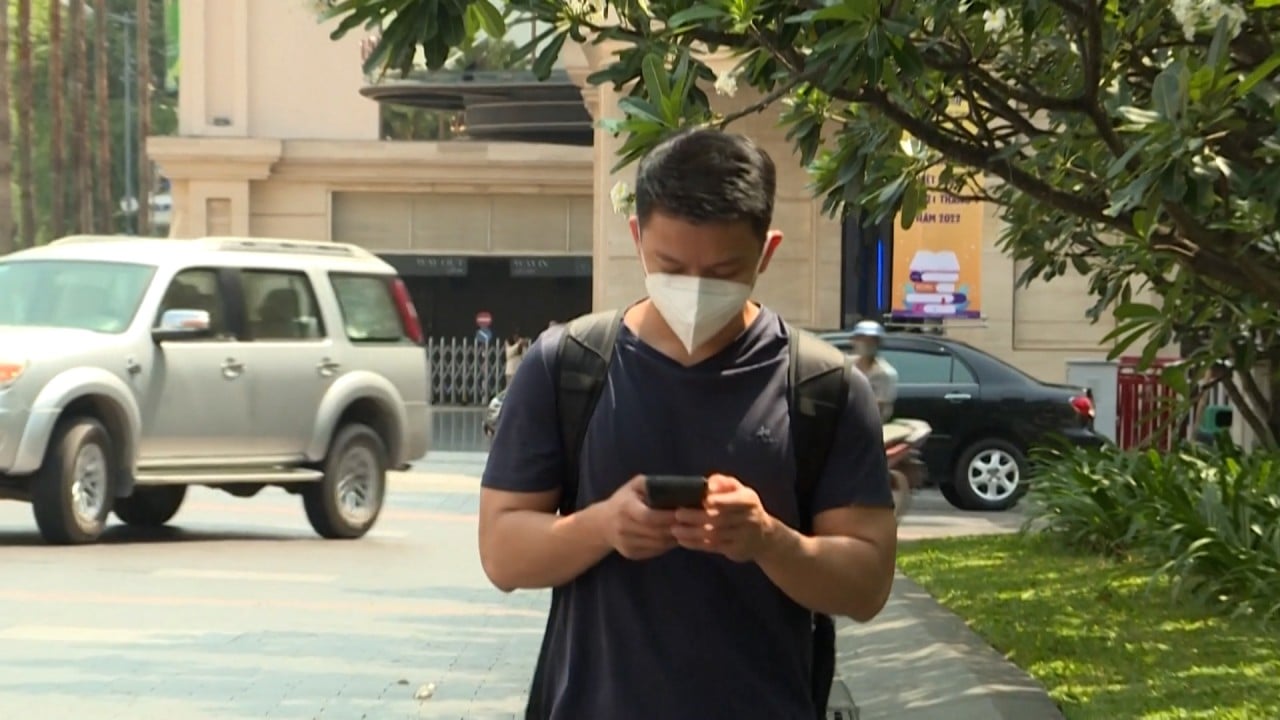
Huawei’s Mate 60 Pro can now make quantum-encrypted phone calls. But are they really hack proof?
- China Telecom Quantum Group debuts new device for Huawei’s Mate 60 Pro that it says can prevent eavesdropping
- But despite ‘triple protection’ strategy, the technology is not completely immune to hacking, industry insiders say
There were more surprises to come, it turned out.
On Monday, China Telecom Quantum Group, in collaboration with Huawei, introduced the Huawei Mate 60 Pro Quantum Secure Call Customized Terminal – a smart device that is equipped with quantum encryption technology. According to the company, this effectively makes it impossible for anyone to eavesdrop on a secured call.
The device was debuted at the 2023 Digital Technology Ecology Conference in Guangzhou, in southern China’s Guangdong province, according to an article on China Telecom Quantum Group’s official social media account. The joint venture was formed in 2020 by China Telecom – one of the country’s three state-owned telecom companies – and quantum information tech firm QuantumCTek Group.
Most current smartphones are based on chips and operating systems developed by American companies, some reportedly hacked by the CIA. Huawei, which in 2019 was added to a US blacklist that cut off its access to advanced US technology, has turned to its home-made 9100S CPU and Harmony operating system to power its devices.
The Chinese government has reportedly gifted Huawei phones to top officials from “friendly countries” such as Venezuela and Serbia.
The new quantum terminal features a “triple protection” strategy, using a domestically produced chip, algorithms that are classified as state secrets, and a quantum security SIM card for enhanced security.
According to the article, the Mate 60 Pro handset can be upgraded to make quantum-encrypted phone calls directly through the native dial pad. The device can also encrypt file transfers and instant messaging, as well as other functions through a pre-installed quantum secure messaging app.
“This type of encrypted communication can only be achieved between terminals with this feature. It can be used in sectors such as public security,” said Wang Chao, general manager of XT Quantech, a Shanghai-based company that uses quantum technology to provide information security solutions.
Encryption processes involve the generation of random numbers. A scientist, who researches quantum communication at a top mainland university, and wished to remain anonymous, told the Post that the core idea of the technology is to transform the way the random numbers are generated – from traditional methods to a quantum-based one.
“Smartphones capable of making quantum-secure calls are functionally similar to their traditional counterparts,” Zheng Jiasheng, director of China Telecom Quantum Group, told the state-owned Science and Technology Daily in 2020.
“The difference lies in the incorporation of quantum keys prepared using quantum information technology,” Zheng said.
Implementing the technology is not particularly challenging, according to Zheng. Telecom operators pre-load quantum keys – true random numbers generated by a quantum random number generator – into the specially designed quantum security SIM card. “These cards are not quantum chips,” Zheng stressed.
Making a quantum phone call generates two secret keys to verify the caller’s identity and the information of the call, thereby ensuring end-to-end encryption.
Users can get the new feature by visiting a shop to purchase the special SIM card and download their own limited number of exclusive keys. Once the keys run out, customers must refill them at a nearby outlet, similar to refuelling a car.
This particular application of quantum technology is not new. In 2020, for instance, South Korean telecoms operator SK Telecom partnered with Samsung to launch the first quantum encryption 5G smartphone – the Galaxy A Quantum – based on similar technological principles.
The only difference is that the Galaxy A Quantum series, including its latest Galaxy Quantum 3, launched in 2022, operate on the Android system, while Huawei’s latest Mate handset runs on its own Harmony 4.0 operating system.
“The security keys are truly random and difficult to decipher, and they are immediately invalidated after the call session ends,” the company said in its article.
Despite the fact that the quantum phone call feature can ensure the randomness of keys according to quantum principles, the new product cannot eliminate eavesdropping since it lacks a quantum physical mechanism in the distribution process, according to several insiders.



